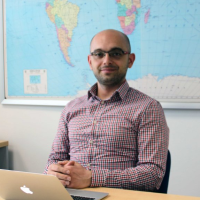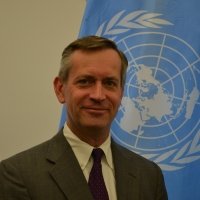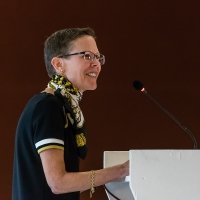Refugees and COVID-19: The Case of the Syrian and Rohingya Crises
A recent Amnesty International report warned that overcrowded refugee camps "will become new epicenters" of the COVID-19 pandemic if action is not taken immediately to address the situation. The AI report noted that lockdowns and curfews in some host countries have "exacerbated dire living conditions, leaving millions of people at risk of starvation and illness." The UN refugee agency, UNHCR, is working with governments and NGOs to boost health, water and sanitation services to protect refugees, though with inadequate funds. With 134 refugee hosting countries reporting local transmission of COVID-19, the situation remains precarious. Refugee and aid agencies worldwide are calling for a global response to avert an uncontrollable spread among the global refugee populations who remain one of the the world's most vulnerable groups. In addition to presenting a global overview, our speakers will home in on the special cases of the Rohingya and Syrian displacements in Asia and the Middle East and the danger the virus poses to these communities.
Selected Quotes
Manzoor Hasan
“One of the big challenges that we are facing in Bangladesh is the challenge of trust. I think, from what we gather, the refugees are not being able to rely on the information that they are getting. As Matthew said, there’s a lot of work that’s going on in terms of giving information, but that information is not being given in the way that actually would get the trust of the refugees”.
“4G is not available. I think if that is made available, I think that will certainly improve the level of trust. There will be greater communication and I think we will be able to give the right information to people and things will certainly improve.”
“In terms of women empowerment, our research shows 12 percent of households where women contribute to the family income. Small, but nevertheless it’s growing, that percentage, and in a way we feel that the COVID-19 will impact on that. The number will, the percentage may go down. We probably have to work and focus on this and make sure that the percentage doesn’t go down. Actually on the contrary we want to see this percentage increasing.”
“Doctors, medical officers, nurses are working in the forefront. There’s a lot of community-led support initiatives that’s going on. Also, we see that refugee-led community-based activities are also increasing. CBOs and youth volunteers are getting more and more involved, so that’s a very encouraging thing that’s happening in the camp.”
Omar Kadkoy
“Another impact of COVID-19 is that 12 percent of Syrians lost their jobs compared only to 3% of Turks. So this, if you ask me, find its roots in the informal employment of Syrians in Turkey because they unfortunately easily disposable and when a business decides to save the costs as much as possible, they give up on Syrians who do not have social security, or do not have any work permits so they can not actually claim any rights if something like this happens.”
“In both countries, in Lebanon and Jordan, and maybe to a lesser extent in Turkey, the majority of Syrians in these two neighboring countries are below the poverty line, which means they are very vulnerable, financially speaking, they are already in debt, and we can somehow generalize that actually the situation of Syrians in these three neighboring countries is exacerbated by the breakout of COVID-19.”
“Research also showed that a decent number of Syrians are not able to follow up with the online curriculum that was launched in Turkey to compensate for not going to schools, but unfortunately those students who were not able to attend this online course, or curriculum, said that we don’t have TV devices to follow up with the online channel, or we don’t have internet to actually follow up with these classes. So this shows or like tells us a message of what the actual international community could do to remedy the consequences of COVID-19.”
Jennifer Poidatz
“The pandemic has really created an emergency within an emergency, and actually, in some cases, when you look at a place like Bangladesh, a triple emergency because you have the natural disasters that occur, many of which are in a refugee context.”
“We also try to emphasize our commitment to being as sufficient and effective as possible with the limited resources that we have, and I think that’s where we really want to highlight the role of local and national actors who are on the ground and in communities. Manzoor mentioned the importance of trust and people believing messages and understanding, and we know that was so critical within the Ebola response. Having that messaging in helping to address stigma and fear by people in those communities is really critical.”
“One thing we’ve seen with this response is a really high and appreciated level of flexibility from donors including UNHCR, and I think that we don’t want to see that go away when the pandemic goes away. Flexibility is required within any humanitarian response and even within our development programming, so let’s learn from that and maintain that level of flexibility, which again, is more important for local actors.”
Matthew Reynolds
“We need to design our help to be fully inclusive. The health and welfare systems of many host countries and communities were already fragile before the initial strains of the pandemic. By helping host communities as well as the refugees, we help ensure the inclusion of the later.”
“The disease doesn’t know boundaries and doesn’t know status, so to defeat it, we have to include everyone. That’s where we start.”
“I’m an optimist in the sense that I do believe there is a light at the end of the tunnel with COVID-19 and that there will be either a cocktail of drugs or a vaccine that will come out. Therefore, while we are naturally and importantly focused on COVID-19’s impact, we cannot lose sight of the underlying emergency that this emergency is on top of. There is a trend that has been going where countries have been restricting and becoming much more nationalistic, and the view toward helping refugees is becoming more difficult. We need to reverse that trend. I think COVID-19 has shown us that things do not follow certain categories, that you put a refugee or asylum seeker in. Humans move and diseases do. We need to go back to remember the underlying problems and crises to and try and make sure that we continuously address them because they are not going away.”
Speakers



Regional Representative for the US and the Caribbean, UNHCR

Introduction

Moderator

Hosted By

Middle East Program
The Wilson Center’s Middle East Program serves as a crucial resource for the policymaking community and beyond, providing analyses and research that helps inform US foreign policymaking, stimulates public debate, and expands knowledge about issues in the wider Middle East and North Africa (MENA) region. Read more


Indo-Pacific Program
The Indo-Pacific Program promotes policy debate and intellectual discussions on US interests in the Asia-Pacific as well as political, economic, security, and social issues relating to the world’s most populous and economically dynamic region. Read more


Environmental Change and Security Program
The Environmental Change and Security Program (ECSP) explores the connections between environmental change, health, and population dynamics and their links to conflict, human insecurity, and foreign policy. Read more
